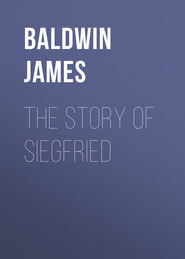По всем вопросам обращайтесь на: info@litportal.ru
(©) 2003-2024.
✖
Eighth Reader
Настройки чтения
Размер шрифта
Высота строк
Поля
"Yes, you're a silly – but I never do forget things – I don't."
"Oh, please forgive me, Tom; my heart will break," said Maggie, shaking with sobs, clinging to Tom's arm, and laying her wet cheek on his shoulder.
Tom shook her off, and stopped again, saying in a peremptory tone, "Now, Maggie, you just listen. Aren't I a good brother to you?"
"Ye-ye-es," sobbed Maggie, her chin rising and falling convulsedly.
"Didn't I think about your fish line all this quarter, and mean to buy it, and saved my money o' purpose, and wouldn't go halves in the toffee, and Spouncer fought me because I wouldn't?"
"Ye-ye-es – and I – lo-lo-love you so, Tom."
"But you're a naughty girl. Last holidays you licked the paint off my lozenge box, and the holidays before that you let the boat drag my fish line down when I'd set you to watch it, and you pushed your head through my kite, all for nothing."
"But I didn't mean," said Maggie; "I couldn't help it."
"Yes, you could," said Tom, "if you'd minded what you were doing. And you're a naughty girl, and you shan't go fishing with me to-morrow." With this terrible conclusion, Tom ran away from Maggie toward the mill.
Maggie stood motionless, except for her sobs, for a minute or two; then she turned round and ran into the house, and up to her attic, where she sat on the floor, and laid her head against the worm-eaten shelf, with a crushing sense of misery. Tom was come home, and she had thought how happy she should be – and now he was cruel to her. What use was anything, if Tom didn't love her? Oh, he was very cruel! Hadn't she wanted to give him the money, and said how very sorry she was? She had never been naughty to Tom – had never meant to be naughty to him.
"Oh, he is cruel!" Maggie sobbed aloud, finding a wretched pleasure in the hollow resonance that came through the long empty space of the attic. She was too miserable to be angry.
III. The Making Up
Maggie soon thought she had been hours in the attic, and it must be tea time, and they were all having their tea, and not thinking of her. Well, then, she would stay up there and starve herself – hide herself behind the tub, and stay there all night; and then they would all be frightened, and Tom would be sorry. Thus Maggie thought as she crept behind the tub; but presently she began to cry again at the idea that they didn't mind her being there.
Tom had been too much interested in going the round of the premises, to think of Maggie and the effect his anger had produced on her. He meant to punish her, and that business having been performed, he occupied himself with other matters, like a practical person. But when he had been called in to tea, his father said, "Why, where's the little wench?" and Mrs. Tulliver, almost at the same moment, said, "Where's your little sister?" – both of them having supposed that Maggie and Tom had been together all the afternoon.
"I don't know," said Tom. He didn't want to "tell" of Maggie, though he was angry with her; for Tom Tulliver was a lad of honor.
"What! hasn't she been playing with you all this while?" said the father. "She'd been thinking of nothing but your coming home."
"I haven't seen her this two hours," says Tom, commencing on the plum cake.
"Goodness heart! She's got drowned!" exclaimed Mrs. Tulliver, rising from her seat and running to the window. "How could you let her do so?" she added, as became a fearful woman, accusing she didn't know whom of she didn't know what.
"Nay, nay, she's none drowned," said Mr. Tulliver. "You've been naughty to her, I doubt, Tom?"
"I'm sure I haven't, father," said Tom, indignantly. "I think she's in the house."
"Perhaps up in that attic," said Mrs. Tulliver, "a-singing and talking to herself, and forgetting all about mealtimes."
"You go and fetch her down, Tom," said Mr. Tulliver, rather sharply, his perspicacity or his fatherly fondness for Maggie making him suspect that the lad had been hard upon "the little un," else she would never have left his side. "And be good to her, do you hear? Else I'll let you know better."
Tom never disobeyed his father, for Mr. Tulliver was a peremptory man; but he went out rather sullenly, carrying his piece of plum cake, and not intending to reprieve Maggie's punishment, which was no more than she deserved. Tom was only thirteen, and had no decided views in grammar and arithmetic, regarding them for the most part as open questions, but he was particularly clear and positive on one point – namely, that he would punish everybody who deserved it; why, he wouldn't have minded being punished himself, if he deserved it; but, then, he never did deserve it.
It was Tom's step, then, that Maggie heard on the stairs, when her need of love had triumphed over her pride, and she was going down with her swollen eyes and disheveled hair to beg for pity. At least her father would stroke her head and say, "Never mind, my wench."
But she knew Tom's step, and her heart began to beat violently with the sudden shock of hope. He only stood still at the top of the stairs and said, "Maggie, you're to come down." But she rushed to him and clung round his neck, sobbing, "O Tom, please forgive me – I can't bear it – I will always be good – always remember things – do love me – please, dear Tom!"
Maggie and Tom were still very much like young animals, and so she could rub her cheek against his, and kiss his ear in a random, sobbing way; and there were tender fibers in the lad that had been used to answer to Maggie's fondling; so that he behaved with a weakness quite inconsistent with his resolution to punish her as much as she deserved; he actually began to kiss her in return, and say: —
"Don't cry, then, Magsie – here, eat a bit o' cake." Maggie's sobs began to subside, and she put out her mouth for the cake and bit a piece; and then Tom bit a piece, just for company, and they ate together and rubbed each other's cheeks and brows and noses together, while they ate, with a humiliating resemblance to two friendly ponies.
"Come along, Magsie, and have tea," said Tom at last, when there was no more cake except what was downstairs.
So ended the sorrows of this day.
MY LAST DAY AT SALEM HOUSE[2 - From "David Copperfield," by Charles Dickens.]
I pass over all that happened at school, until the anniversary of my birthday came round in March. The great remembrance by which that time is marked in my mind seems to have swallowed up all lesser recollections, and to exist alone.
It is even difficult for me to believe there was a gap of full two months between my return to Salem House and the arrival of that birthday. I can only understand that the fact was so, because I know it must have been so; otherwise I should feel convinced there was no interval, and that the one occasion trod upon the other's heels.
How well I recollect the kind of day it was! I smell the fog that hung about the place; I see the hoar-frost ghostly, through it; I feel my rimy hair fall clammy on my cheek; I look along the dim perspective of the schoolroom, with a spluttering candle here and there to light up the foggy morning, and the breath of the boys wreathing and smoking in the raw cold as they blow upon their fingers, and tap their feet upon the floor.
It was after breakfast, and we had been summoned in from the playground, when Mr. Sharp entered and said, "David Copperfield is to go into the parlor."
I expected a hamper from home, and brightened at the order. Some of the boys about me put in their claim not to be forgotten in the distribution of the good things, as I got out of my seat with great alacrity.
"Don't hurry, David," said Mr. Sharp. "There's time enough, my boy, don't hurry."
I might have been surprised by the feeling tone in which he spoke, if I had given it a thought; but I gave it none until afterward. I hurried away to the parlor; and there I found Mr. Creakle, sitting at his breakfast with the cane and newspaper before him, and Mrs. Creakle with an opened letter in her hand. But no hamper.
"David Copperfield," said Mrs. Creakle, leading me to a sofa, and sitting down beside me, "I want to speak to you very particularly. I have something to tell you, my child."
Mr. Creakle, at whom of course I looked, shook his head without looking at me, and stopped up a sigh with a very large piece of buttered toast.
"You are too young to know how the world changes every day," said Mrs. Creakle, "and how the people in it pass away. But we all have to learn it, David; some of us when we are young, some of us when we are old, some of us at all times of our lives."
I looked at her earnestly.
"When you came away from home at the end of the vacation," said Mrs. Creakle, after a pause, "were they all well?" After another pause, "Was your mamma well?"
I trembled without distinctly knowing why, and still looked at her earnestly, making no attempt to answer.
"Because," said she, "I grieve to tell you that I hear this morning your mamma is very ill."
A mist rose between Mrs. Creakle and me, and her figure seemed to move in it for an instant. Then I felt the burning tears run down my face, and it was steady again.
"She is very dangerously ill," she added.
I knew all now.
"She is dead." There was no need to tell me so. I had already broken out into a desolate cry, and felt an orphan in the wide world.
She was very kind to me. She kept me there all day, and left me alone sometimes; and I cried and wore myself to sleep, and awoke and cried again. When I could cry no more, I began to think; and then the oppression on my breast was heaviest, and my grief a dull pain that there was no ease for.
And yet my thoughts were idle; not intent on the calamity that weighed upon my heart, but idly loitering near it. I thought of our house shut up and hushed. I thought of the little baby, who, Mrs. Creakle said, had been pining away for some time, and who, they believed, would die too. I thought of my father's grave in the churchyard, by our house, and of my mother lying there beneath the tree I knew so well.











